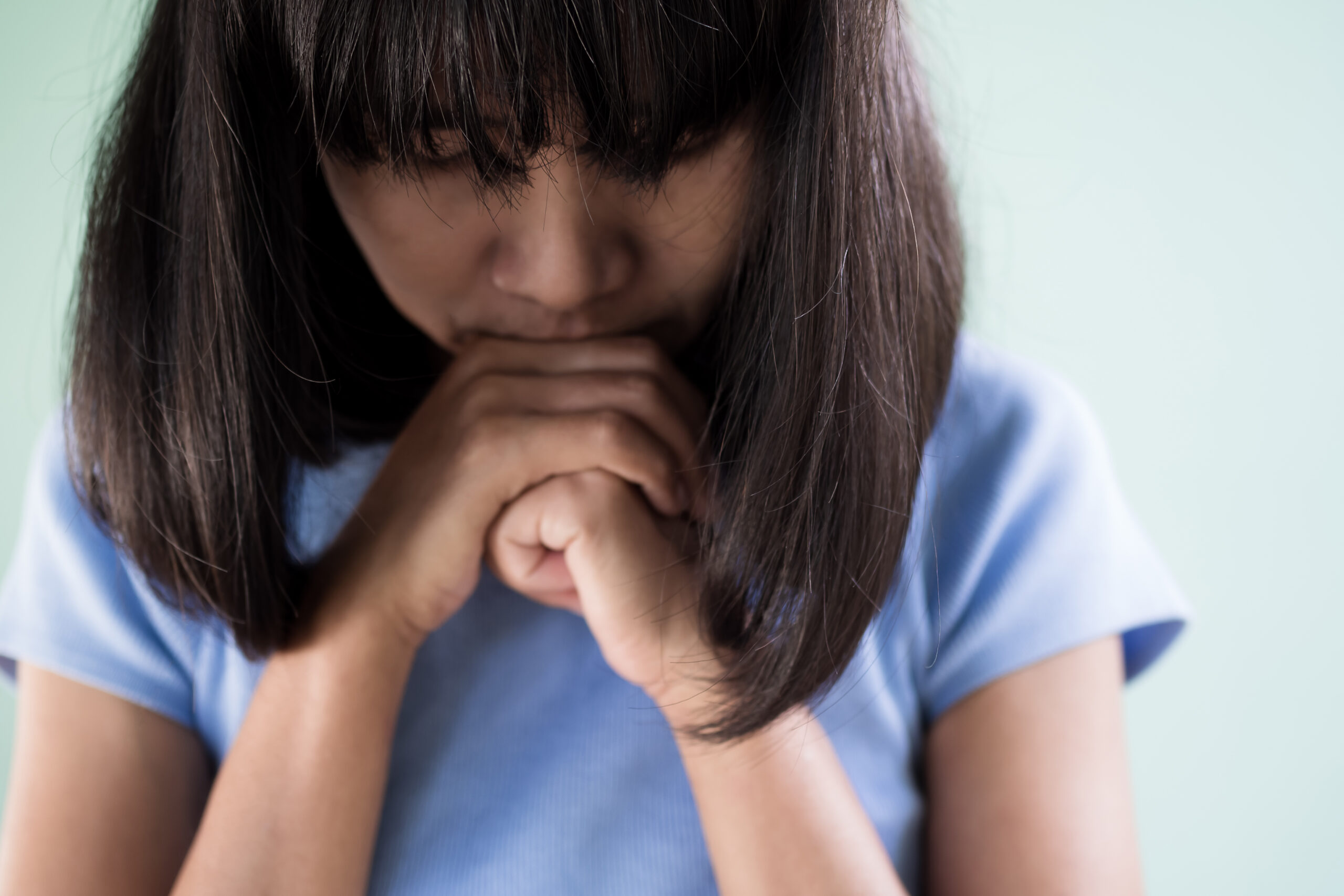
THE WASHINGTON POST – After my now-husband asked me to marry him – something I dearly wanted – I fell into a burning cauldron of anxiety. When I became pregnant with a much desired child, the same thing happened. Fabulous vacation? I can handle oral surgery better.
When experiencing joy, I feel a surge of happiness for an instant, and then it immediately flips into an overwhelming sense that something truly terrible is going to happen to snatch it all away.
There is a word for this: cherophobia, or fear of happiness. While it is not a recognised mental illness – it is not in the Diagnostic and Statistical Manual of Mental Disorders – research suggests it is a real issue for many people.
In a 2016 meta-analysis, Sam Winer, associate professor of psychology and director of clinical training for the doctoral program of clinical psychology at the New School for Social Research, introduced the theory of reward devaluation, which suggests that some people who are depressed avoid feeling positive because of past experiences with negative outcomes.
People who were depressed and anxious seemed to be on alert for bad things that might happen; they feel that things can be too good to be true and that there has to be a catch. But it was only the depressed individuals who avoided positivity altogether. As a character in the prison movie “The Shawshank Redemption” puts it: “Hope is a dangerous thing.”
Childhood, karma, dread
In a study in the December issue of the Journal of Behaviour Therapy and Experimental Psychiatry, Mississippi State University researchers used Winer’s reward devaluation framework to examine the connection between specific positivity-avoidance-related thoughts and actual behaviours.
“For some people, past experiences of embracing happy situations that then turned out negatively can alter their experiences of joy, making them dread what comes next. So, it could be adaptive, to an extent, to be on guard. If something bad may happen, at least you can prepare for it,” says one of the authors, Michael R Gallagher, a doctoral student in the department of psychology at Mississippi State University.
As Derek Farrow, 34, a member of the Los Angeles Fire Department who experiences happiness fear, puts it: “I’ve seen celebrations that go bad and terrible divorces, and I’ve had friends on the job who have died in the line of duty. And I think if it can happen to them, it can happen to anybody. I am scared that if I let my guard down and outright enjoy something, that’s going to put me a step behind. And those bad things are going to happen to me.”
A 2022 study of 871 adults in several countries about the aversion to happiness phenomenon found that the strongest predictors of it were perfectionism, an unhappy childhood, loneliness and belief in karma and black magic.
The perfectionist’s challenge
Mohsen Joshanloo, an associate professor in the department of psychology in South Korea’s Keimyung University, who was the author of the study, says: “Perfectionists may see happiness and fun as obstacles to their pursuit of excellence and perfection. And an unhappy childhood, among other things, means growing up in a family where it is difficult to experience, share and create happiness.
Children who grow up in such circumstances may develop emotional deficits and difficulty regulating their emotions, including positive ones.”
In a previous review study, Joshanloo and a co-author reported that across cultures, there are “a range of different reasons why people claim to be averse to happiness, including that: being happy causes bad things to happen to you, being happy makes you a worse person, expressing happiness is bad for you and others, and pursuing happiness is bad for you and others.”
Children’s author J de la Vega, 38, of Hesperia, Calif., traces her happiness worries to a perfectionism that was bred in her as a child by well-meaning parents who wanted her to try her best and take every opportunity.
“By the time I was in second grade, I was reading at a high school level and doing algebra. But there has always been this thought in the back of my mind that I have to be better; that it’s never enough,” she recalls.
As a result, no matter how successful she is as an author, she feels she cannot be happy in the moment. There is always this fear that failure is around the corner.
For Kara Payton, 37, of Overland Park, Kan., the idea that happiness can bring bad things was true in her childhood.
“In my home, frivolity or general happy-go-lucky behaviour was usually met with a disciplinary bark from across the house. I eventually grew to understand laughter and play were disruptive. It wasn’t until years later when I snapped at my own children for laughing ‘too loud’ that I realised I’d been trained to shut down happiness,” she says.
She has since developed a podcast called “The Happiness Habit,” which documents her journey toward unconflicted positivity.
Joshanloo notes that effectively addressing fear of happiness requires a holistic and multistep approach that begins with self-awareness and recognising one’s reluctance to embrace and enjoy happy experiences.
It is critical to distinguish whether this fear of happiness exists alongside other mental health issues, such as depression or anxiety, or whether it exists in isolation.
He says: “It would then be useful to explore the causal factors behind fear of happiness, which vary from person to person. Understanding these underlying roots empowers individuals to embark on a path of informed and deliberate steps to confront their aversion to happiness. Enhancing emotion regulation skills always helps to reduce fear of happiness and increase experiential openness.”
Four questions to ask yourself
Payton has learned to overcome her fear habit by asking herself four questions proposed by Byron Katie, an author who suggests that people recalibrate their thinking to challenge and lessen the harmful effects of long-held beliefs: Is it true? Can I absolutely know it’s true? How do I react – what happens – when I believe that, and what would you be without the thought?
Going through this list helps Payton challenge the negative tapes that run through her head when confronted with happiness. “In that pause of that observation and awareness, I can observe my own story and uncouple it from my fear response,” she says.
Farrow has been getting talk therapy to help him stay more grounded in the moment. He says: “It’s not a foolproof plan, but I definitely see that it helps. I’m even able to think about past accomplishments, and taking the time now to give myself a little pat on the back. Then I tell myself that whatever is going to happen tomorrow is going to happen however I feel about it, so I might as well have a little happiness now.”
De la Vega has dealt with her happiness anxiety through talk therapy, medication and the support of a naturally sunny husband. When she feels herself backsliding, she will call a friend and brag a little about herself. “It still doesn’t feel natural, but it helps me feel validated in my emotions,” she says.
She is also trying to spread the word through her bilingual children’s books such as “Wepa,” in which a child with attention-deficit/hyperactivity disorder learns to celebrate who she is.
She says, “I try to make my lead characters strong and self-aware, so future generations know it’s okay to be those things as well.”
Frankly, I have no idea where my happiness anxiety came from. I had a lovely childhood with parents who liked nothing better than to laugh. So when my son was born, I made a promise to myself that I would not put my anxiety on him.
I wanted him to be able to embrace positivity, so I tried as hard as I could to celebrate life’s joys with him without looking over my shoulder. It works somewhat; sort of the old “fake it till you make it” idea. In fact, when he recently got married, I had the time of my life. – Beth Levine



